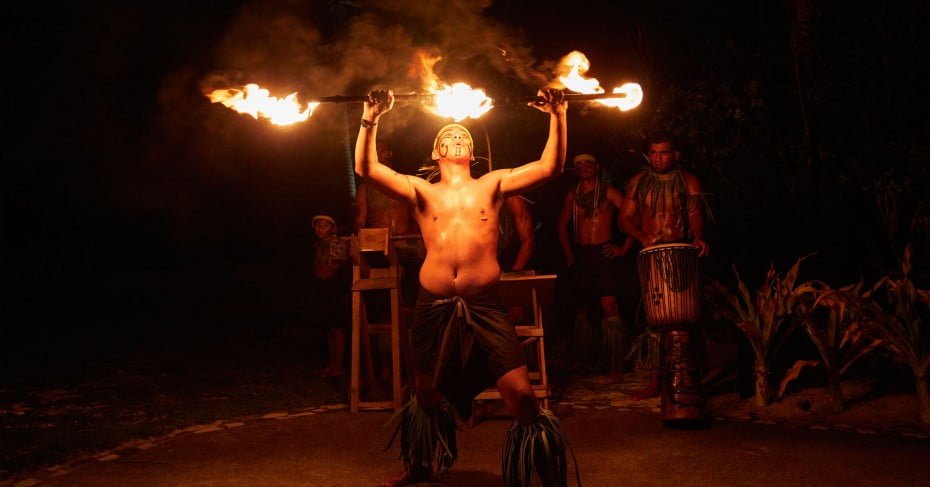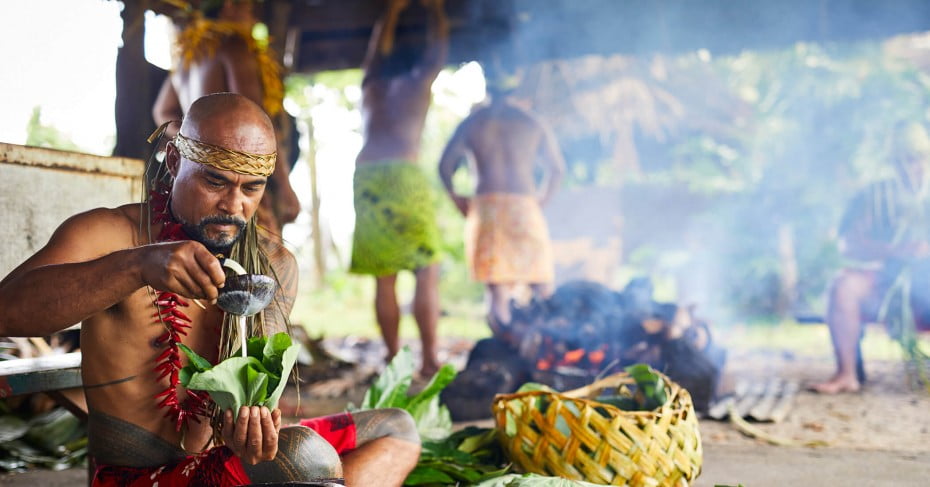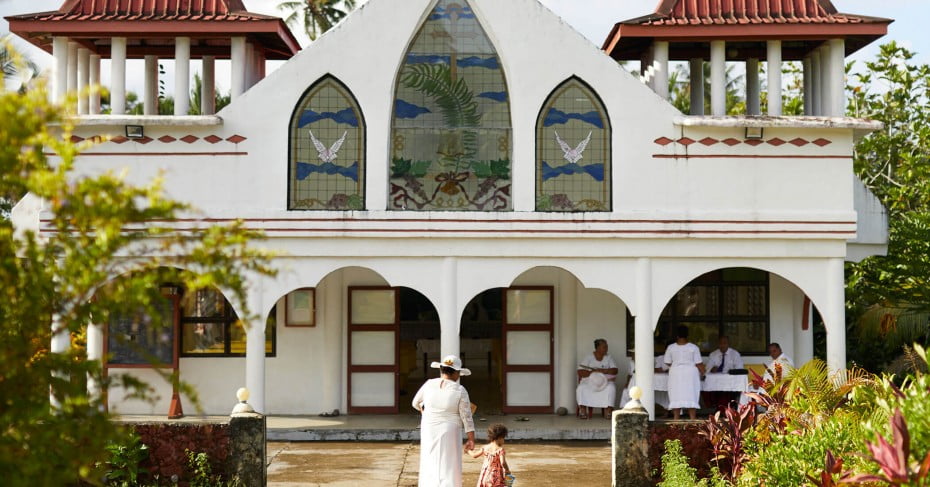Discover what makes Samoa tick
Immersing yourself in Samoan cultural traditions and discovering Fa'a Samoa - the Samoan Way - will be the beginning of an unforgettable trip. Samoan culture isn't only found in villages; resorts embrace the Samoan way of life too, especially when it comes to entertainment.
On Fiafia nights, performers serenade and impress with traditional Samoan song and dance. The bold and daring Siva Afi - a fire knife dance - is a sight you won't soon forget.

Traditional Samoan entertainment
If you're in Samoa to unwind and take it easy, you probably won't have to leave your accommodation to discover the joy of Samoan song and dance. Local performers often gather together to put on a Fiafia night once or twice a week at most resorts. There are also Fiafia shows you can attend in the city of Apia.
A proper Fiafia night includes a buffet of traditional Samoan food. Don't forget to try palusami, baby taro leaves baked with coconut milk; and Oka, the Samoan take on raw fish. While you're eating, performers serenade and impress with traditional Samoan song and dance. The bold and daring Siva Afi - a Samoan cultural fire knife dance - is a sight you won't soon forget.
Everyday village life
The Samoan Cultural Village in the capital city of Apia is a good place to get a glimpse of what life is like in the local villages. You'll discover that men do the cooking, learn how an umu is prepared and find out just how much muscle power goes into making fresh coconut milk. Traditional cloth making, creation of cultural costumes, wood carving and traditional tattooing also take place at the village. Because of the ceremony involved with Samoan cultural tattoos, make sure you always ask first if it's okay to watch.

Etiquette and language during village visits
Samoan locals are hospitable and welcoming, but it's common courtesy to respect Samoan cultural values and adhere to protocols, particularly if you plan on visiting villages. Dressing appropriately is important, so swimwear and revealing summer clothing should be reserved for the beach or pool.
With vividly painted fales and lush surroundings, Samoa's many villages are as photogenic as they come. Before snapping away, always seek permission from village elders before taking photographs in a village.
Villagers gather for prayer every evening, usually between 6 and 7pm, and a 10-to-20 minute curfew comes into place. A bell is rung or a shell blown to signal the start and end of the curfew, so avoid being on the road at this time. Rules are more relaxed when staying on beach resorts, but if you're ever in doubt, err on the side of caution and ask your resort or a village member for advice. Learning a couple of Samoan phrases - such as Talofa (hello) and faafetai (thank you) - always helps too.

Sundays are special
On Sunday, Samoa has a change of pace. The majority of businesses and shops close as villages take a day of rest to celebrate faith and family. A few attractions remain open, but you'll find that life slows dramatically on the Sabbath day. Visitors are encouraged to go about their activities in a quiet, respectful manner. It's a great excuse to relax and take things easy.
Religion is a cornerstone of Samoan culture and attending a local Sunday church service is a memorable experience. You can do a lot of listening, thinking and singing on a Sunday spent immersed in Samoan religious culture.
The sacred tatau
In Samoa, tatau (tattoo) are part of an important tradition that has been practiced for thousands of years. Wearing your tatau is a sign that you have earned respect. Both men and women wear their unique tatau with extreme pride.